This week we bring you the latest on unconditional offers, Parliament give the nod to accelerated degree funding, the wonk-press frenzy in dissecting Chris Skidmore’s first formal speech, and a little on the B-word.
Universities Minister speaks out
Chris Skidmore gave his inaugural formal speech as Universities Minister on Thursday which set out his vision for the higher education sector. He began by raising the uncertainties of Brexit and the knock on effect on recruitment, staffing and funding. He acknowledged the Post 18 HE Review added to this uncertainty and strove to reassure:
- I hear your concerns and I am keen to work with you during this difficult period.
- My vision for our universities and colleges is a positive one. I’m not going to be a Minister who comes in and beats up or needlessly berates the sector. Instead, I want to restate my commitment to you today to work in partnership with you to ensure our higher education sector remains one that works for everyone and of which we can be proud in generations to come.
- Given the extent of recent regulatory changes, I understand the prospect of increased government intervention may raise alarm bells in the sector. But let me reassure you today that, as a former academic myself, I fully appreciate the concept of institutional autonomy. And I believe so much of what is good about our universities today has come about because of the freedom they have been able to exercise.
He continued on to talk of the TEF and the independent review which is “an important opportunity to take stock of the TEF from a constructively critical perspective”. On accelerated degrees he acknowledged they weren’t for everyone but were “just one way that the sector can expand its offerings for those who are looking for something different from their higher education experience”.
Value for money, the LEO data, and student mental health got a mention and there were hints in there that Skidmore feels passionately about students who drop out of university.
- On LEO: I also realise the LEO data could be developed further. So I am keen to engage with the sector to explore how to make the most of this data going forwards. For one, I want to look at ways of making this data more readily available to the academic research community to allow for more in-depth analysis. I also intend to set up a Data Advisory Committee to help me ensure, as Minister, that we are making the most of the opportunities thrown up by these rich new datasets and that they are being used in the best way possible – to ensure they are reaching those who could benefit from them; that they are being used in context; and that their insights and implications are being fully understood.
And perhaps positive thoughts for a balanced sector amid the differential fees rumours of late:
- As much as I see the value of more data, I am also aware of concerns it has given rise to about the value for money of certain courses, disciplines and institutions. On this, I believe we need to take a step back and ask what exactly value for money means in the context of higher education. Successful outcomes for students and graduates are about much more than salary: if we are to define value purely in economic terms, based on salary levels or tax contributions, then we risk overlooking the vital contribution of degrees of social value, such as Nursing or Social Care, not to mention overlooking the Arts, Humanities and Social Sciences – the very disciplines that make our lives worth living.
- How you define value for money depends heavily on how you envisage the kind of world you want to live in. For my part, a society without people to care for each other; to support each other; to teach the next generation; or to step in selflessly in times of crisis is a very sad society indeed. Equally, although I am officially Minister for Science, I take great pride in wanting to be Minister for the Arts and Humanities as well – disciplines which enrich our culture and society, and have an immeasurable impact on our health and wellbeing.
- As we move forwards into the future, the last thing I want to see is value judgements emerging which falsely divide the Sciences and Engineering from the Arts, Humanities and Social Sciences. To do so would be a travesty. Our future success depends on all these disciplines being completely intertwined.
Although perhaps celebrations should be tempered by the fact Chris gave his speech at the Royal Academic of Dramatic Arts.
He concluded: In my vision for the sector, people should be free to embark on higher education at any time that is right for them. We should build bridges to make this happen. By 2030, I want us to have built a post-18 education system that gives people the flexibility they need – so that no-one who has quit higher education, for whatever reason or circumstance, has to feel they have dropped out with no routes back in later in their lives.
However, Wonkhe were not convinced by the Minister, they say:
- Talk was that RADA auditions were being held on the day a nervous Chris Skidmore took to a small stage in the bar to address a critical audience of wonks and journalists. But did he pass?
- I’d have to say….no. Not on the lack of strength in his own performance, but on the blandness of his material. It was a crop of sector pleasing bromides that failed to hold attention and gave him little to work with. There were no popular press-pleasing pot shots at universities – so that’s the good news. He’s pitching himself more as late Sam Gymiah, less as Jo Johnson. But as a former history lecturer and pop-punk agitator, you expect the well-struck aside and the fascinating digression to be a part of Skidmore’s armoury – first time out he played it straight. I sat there for 30 minutes, and my abiding memory was him repeatedly hedging statements with the world “overwhelmingly”.
- But there was little chance of the select audience being overwhelmed – the most interesting thing we learned was that Skidmore had already visited ten universities (naming most of them in the speech), and enjoyed responding to Radio 4 tweet prompts. There were no questions, and no huddle afterwards for journalists – though THE apparently has an exclusive interview. Good luck to them.
Research Professional said: Chris Skidmore may not be in office for long, but his choice of setting and conciliatory tone in yesterday’s inaugural speech suggest there will be changes from the Johnson/Gyimah era. Not since David Willetts in 2010 has a universities minister arrived in post waving an olive branch rather than a brickbat.
They continue:
- Inaugural speeches from ministers also need to be looked at for what they do not contain. In the case of Skidmore’s outing yesterday, there was little about science, engineering or research. The phrase “world leading” cropped up many times as you would expect, but there was also no mention of the Russell Group, although Oxford and Cambridge did get a line.
- There was the ritual nod to his predecessors—and every sign that the emphasis on mental health under Sam Gyimah will continue—but in other respects, we should expect some clearing out.
- One of the most revealing sections of the speech was on the TEF. Skidmore began by appreciating that there is disquiet over the TEF but then added that “no university should shy away from it”. He mentioned that Dame Shirley Pearce’s independent review “provides an important opportunity to take stock of the TEF from a constructively critical perspective”. And then came the killer line: “Dame Shirley has commissioned the Office for National Statistics to carry out an analysis of the statistical information used in TEF assessments and its suitability for generating TEF ratings.”
- Thanks to evidence from the Royal Statistical Society and the views of the Department for Education’s own office of the chief scientist, we already know that statisticians are singularly unimpressed with the TEF’s lack of statistical rigour. It is not beyond possibility that the Pearce review might precipitate the beginning of the end for the TEF. Skidmore ended with a call for universities to help twist the knife: “I hope that you will take the opportunity to make your views known to Dame Shirley over the consultation period ahead.”
- Skidmore also went out of his way to praise the UK’s modern universities, something that ministers rarely do.
Here’s the link if you want to read more of Research Professional’s take on the Minister’s speech.
Post-18 review
This from Research Professional: Augar leaks have substance, says Sussex vice-chancellor who claims that many of the rumours about the Review of post-18 Education and Funding are true (lower fees, barring lower grades from accessing loans, higher fees for medicine and science).
The House of Commons library has produced a briefing overview on the state of part time undergraduate education in England, discussing the decline in numbers and the impact this has on the HE sector. Traditionally the view has been that part time student numbers have dropped because of the introduction of higher tuition fees, the lack of viable loan funding and the influence of not funding a second degree for a student who has previously studied at the same level. The timing of the Commons briefing release this week coincides with an announcement from the Welsh Government of a 35% increase in part time undergraduates from Wales. Welsh post-grads have been were eligible for dedicated bursaries and support from Welsh universities since 2018/19. With means-tested grants and loans to be introduced from September 2019. The news story attributes the success through increased numbers to the new Welsh student support system. Welsh Education Minister Kirsty Williams said:
- “This is fantastic news and a real vote of confidence in our student support package, the first of its kind in the UK or Europe.
- We have always said that high living costs are the main barrier for students when thinking about university. Our package of support was specifically designed to address these concerns, making it easier for people to study part-time, especially if they have work or family commitments.
- Our radical approach to supporting part-time study is essential to improving social mobility, employment outcomes, access to the professions and delivering on our commitment to lifelong learning.”
The DfE published analysis on the importance of financial factors in decisions about higher education.
Key Findings:
- Some groups do express greater debt aversion than others, especially:
-
- those planning to live at home whilst studying (35%),
- those of a non-white ethnicity (30%), and
- those from lower socio-economic group (26%).
- 63% of applicants expected to use parents or 62% savings as a source of income whilst at university (particularly applicants from higher socio-economic groups (75% and 70% respectively).
- University was the only option considered by the majority of applicants (75%), (this increases to 78% for Russell group applicants). This was consistent across socio-economic backgrounds. Getting a job and travelling were the main alternatives considered by applicants
- The course offered (82%), university reputation (58%), and potential for high future earnings (41%) were the most commonly cited major influences on applicants’ choices about where to study.
- Around half of applicants (54%) said they were ‘put off’ to some extent by the costs associated with university.
Accelerated Degrees
This week the Lords approved the statutory instrument which makes provision for the elevated fee level (and accompanying loan arrangements) to facilitate and prompt more universities to offer faster intensive degree programmes. The BBC reports on the decision. Ex-Universities Minister, Sam Gyimah, pushed for the accelerated degrees calling on universities to shake up their offer and provide more flexibility, included accelerated provision, to meet the needs of a wider range of students and businesses. While there can be inertia inherent within large, established organisations who know their recruitment draw well the sector did not offer opposition to the push for accelerated degrees. The welcome to the new arrangements has been similar to that for degree apprenticeships, perhaps slower uptake overall than the Government wanted and often for good reason – the devil is in the delivery detail. Dr Tim Bradshaw, chief executive of the Russell Group, sums it up:
- “Greater choice for students is always good but I would caution ministers against ‘over-promising’. The government’s own projection for the likely take-up of these degrees is modest and we actually hear many students calling for four-year degrees, for example, to spend a year on a work placement or studying abroad. I wouldn’t want disadvantaged students to rule out a traditional three-year course because they didn’t believe they could afford it. Doing a more compressed degree also reduces the opportunity for part-time work, potentially increasing short-term financial pressure.”
It will be interesting to watch how many programmes are actually launched and the eventual outcomes for students.
Unconditional Offers
UCAS published data on unconditional offers on Thursday detailing the significant rise in unconditional offers nationally. There were no new messages and we’ve already shared the details with you in the recent policy updates. The only change is that the OfS now have an ‘independent’ and reliable national data set from which to push for the sector to reduce its overuse of unconditional offers to support recruitment requirements. With the threat of sanctions from the Competition and Markets Authority as a harbinger of doom for any institutions who fail to heed warnings and curb their excessive overuse. Smita Jamdar dissects the threat below.
The OFS responded: Nicola Dandridge, chief executive of the Office for Students, said:
- ‘I welcome the publication of this data by UCAS, and the increased transparency it brings around the use of unconditional offers.
- ‘We are especially concerned about ‘conditional unconditional offers’. These are offers where a student has to commit to making a particular university their first choice before the offer becomes unconditional. The risk is that this places undue pressure on students to reach a decision which may not be in their best interests.
- ‘As we made clear when we published our insight brief on this topic last week, there are some good reasons why universities might make unconditional offers. However, for a number of universities this data will make uncomfortable reading – where they cannot justify the offers they make they should reconsider their approach.’
The OfS also issued a news story warning universities against indiscriminate use of unconditional offers stating it ‘is akin to pressure selling and could put them in breach of consumer law’. The statement accompanies the launch of a new series of Insight briefs on ‘priority policy issues’ you can read the first research paper on unconditional offers here.
Wonkhe ran an article by Smita Jamdar of Shakespeare Martineau, on the OFS’s allegations that some practices in offer making could amount to “pressure selling”. Smita says that there are several ways that unconditional offers could be relevant to consumer law:
- The first is falsely stating that an offer will only be open for acceptance for a particular time, or will only remain available on certain terms for a certain time. The second is providing distorted information about market conditions to get a consumer to purchase the service on terms that are less favourable than market conditions. So cases where students are put under pressure to accept quickly, or to accept because they won’t get a better offer elsewhere, might amount to a banned practice.
- Depending on the facts and circumstances, there may be other features of unconditional offers that constitute “aggressive practices”. A practice is aggressive if it significantly impairs a consumer’s freedom of choice through coercion or undue influence and it leads to the consumer entering into a transaction where he or she would not otherwise have done so. Persistence, and exploiting any vulnerability on the part of the consumer, are examples of factors that could lead to a practice being regarded as aggressive.
- Finally, the regulations also make unlawful a broader range of “unfair practices”. A practice is unfair if it contravenes the requirements of professional diligence and materially distorts or is likely to distort the economic behaviour of the average consumer (average in the context of the regulations means taking into account any particular vulnerabilities of the consumer group targeted, so in the case of many prospective students, their youth and inexperience).
Of course, any case will depend on its particular facts. Action might be taken in court for a criminal offence, by the Competition and Markets Authority seeking assurances about compliance, or by a student seeking redress – including withdrawing from their programme and getting their course fees back.
Here are some press links: The Guardian, The Telegraph, Daily Mail, The Times, TES, Financial Times and the Belfast Telegraph highlights Northern Ireland’s two universities who between them only made 10 unconditional offers for the last cycle.
Prior to the UCAS data release Dean Machin from Portsmouth wrote a thought provoking HEPI blog on UCAS as the gate keeper of admissions data and how their previous reluctance to release data may actually have implications for the Competitions and Market Authority too.
This story will run and run and we can expect more from the OfS in the coming months.
Admissions – and access to HE
Meanwhile a new blog on Wonkhe rounds up the end of the 2018 application cycle to give a national comparative perspective. Wonkhe also comment: For the 2018 cycle overall, the relentless rise of the Russell Group seems to have slowed, with post-92 institutions the big winners in terms of year on year growth in acceptances. There’s also some surprises in those seeing large year-on-year shrinkage
Lastly, the HESA 2017/2018 release reports that the number of students in higher education in 2017/18 is at a five year high (2,343,095 students), and reflects a steady increase since 2012/13. The increased numbers also reflect increased diversity within the student body with a growing proportion of black, Asian, and mixed background students, as well as those from other ethnicities, and increased levels of students with a disability.
However, David Lidington MP, is not encouraged by the increased diversity within the HESA statistics and spoke out via a Government news story on Friday. The story announces measures to improve outcomes for ethnic minority students in higher education… [which are]… part of a bold cross-government effort to “explain or change” ethnic disparities highlighted by the Prime Minister’s Race Disparity Audit website, so people can achieve their true potential, whatever their background and circumstances.
The figures from the Race Disparity Audit and OfS show that while record numbers of ethnic minorities are attending university, only 56% of black students achieved a First or 2:1 compared to 80% of their white peers in 2016/2017, and black students are the most likely to drop out of university. In the workforce, only 2% of academic staff are black. White British low-income males remain the least likely to attend higher education.
Universities Minister, Chris Skidmore, said he expected universities’ access and participation plans: to contain ambitious and significant actions to make sure we are seeing material progress in this space in the next few years…It is one of my key priorities as the Universities Minister to ensure… we redouble our efforts to tackle student dropout rates. It cannot be right that ethnic minority students are disproportionately dropping out of university and I want to do more to focus on student experience to help ethnic minority students succeed at university.
The carrot and stick measures include:
- Holding universities to account through their Access and Participation plans – with the OfS using their powers to tackle institutions who do not fulfil their promises
- Including progress in tackling access and attainment disparities within league tables to pressurise institutions to make better progress
- OfS to develop a new website replacing Unistats with a particular mindset to ensuring the needs of disadvantaged students are taken into account. The website will provide better information to students so they can make informed choices.
- Reducing ethnic disparities in research and innovation funding – UK Research and Innovation is commissioning evidence reviews on challenges for equality and diversity and how they can be addressed.
- Gathering evidence on what works to improve ethnic minority access and success – through the OfS Evidence and Impact Exchange
- Reviewing the Race Equality Charter. Advance HE will look at how the sector charter can best support better outcomes for both ethnic minority staff and students.
- Encouragement for institutions to address race disparities in their workforce – using tools such as the Race at Work Charter and Race Equality Charter.
- Scrutiny of each universities published data on admissions and attainment broken down by ethnicity, gender, and socio-economic background with a focus on all institutions to make progress, not just providers who have the poorest records.
The OfS have also published their commissioned research into Understanding and overcoming the challenges of targeting students from under-represented and disadvantage ethnic backgrounds. WP Wonks will recognise some familiar names from the sector within the authors of the report. There are also guidance and case studies available on the OfS page.
The OfS have published a case study of a successful academic study skills support service programme implemented in three northern FE colleges for non-traditional HE learners to support their transition and success at HE level. The study found engineering and IT students the hardest to reach with few self-accessing the service. The case study describes changes made to scheduling, flexibility in approach and embedding core elements within the programme induction. The programme’s success was partly measured using the Duckworth’s GRIT questionnaire. Which looks at confidence levels and the ability to sustain interest in and effort towards long-term goals, such as academic study.
In other WP news the Social Mobility Commission expect to issue their regular publication State of the Nation updated for the 2018 year in the spring.
Preparing and supporting students in the transition to University
Here is our regular student feature from SUBU’s Sophie Bradfield…
On Wednesday 23rd January I attended a Westminster Briefing on behalf of SUBU, on supporting students into Higher Education (HE) which focused on how to prepare students with realistic expectations to help them transition into University life. The current generation (Z) is the most likely to go into Higher Education with almost half going to University, but student expectations aren’t always an accurate picture of reality and this is a problem for transitions. Unrealistic student expectations of Higher Education can be linked to access for widening participation students; student mental health; retention; progression and success. Alongside the importance of helping students to have realistic expectations of University, a key theme identified by each speaker was the significance of students developing a sense of belonging to help them transition into HE. Below are a few key thoughts from the day.
The briefing began with a presentation from Dominic Kingaby, the Student Experience Policy lead at the Department for Education (DfE), who emphasised the way that mental health affects incoming and current students. The Office for National Statistics’ work around Measuring National Wellbeing shows that prospective and current students have lower mental health than the general population. The 2017 ‘Reality Check’ report from HEPI and Unite Students found that around 1 in 8 applicants to University have pre-existing mental health conditions, which they often won’t disclose to their University. Mental Health can be exacerbated by a number of pressures which are part of University life, for example money issues, accommodation issues, assignment pressures etc. The report also found that when facing issues, 85% of prospective students would feel most comfortable talking to their friends/course-mates and flatmates about it, showing the importance of peer support and students establishing good friendships whilst at University.
It was reflected by the group that the pressures of going to University and the academic workload itself hasn’t necessarily changed that much in the last ten years however the mind sets of students have. Of course class sizes are bigger; students have more information at their fingertips and financing a degree is at the forefront of most students’ minds, which is intensified by social media and the news. Yet more than ever before, students are coming to University suffering with ideals of ‘perfectionism’ cultivated through years of their educational progress being monitoring and tracked from a very early age. (Dominic noted that he was feeding these unintended consequences of monitoring into the DfE). This ‘perfectionism’ then deepens a mantra of University just being for “a degree” and students having a sense that they don’t “have time” to take part in and be transformed by the whole experience. Consequently they are missing out on the vital extra-curricular elements which foster skills for progression and success. Students are also increasingly suffering with ‘Imposter Syndrome’ leading to sentiments of not belonging at University which impacts retention.
Students who aren’t prepared for HE will have very different expectations to the reality as FE is very different. The Government’s work on a strategy for tackling loneliness notes that “Students and those in higher education can be at risk of loneliness, especially when starting their course, and this can lead to greater feelings of anxiety, stress, depression and poor mental health.” On the academic side of things alone they will be challenged by the difference in student-staff ratios and going from fixed curriculums to independent self-study. It was agreed in the briefing that more needs to be done for students before they are even old enough to apply to University but there is also a lot that can be done in the period between an offer being given and coming to campus. There were a whole range of good practices from different institutions; from linking up incoming students with current students for peer support; to providing a portal for incoming students with all the information they would need on life at University (not just the academic side of things); and also a trial at Plymouth University of the whole of the first year being a transitionary period.
Other noteworthy aspects of the briefing include the impact that going to an Insurance choice rather than a 1st choice can have on delaying the ‘sense of belonging’ that a student has. It was also discussed that with a diverse student body with many different identities, transition needs to be a whole institutional and partnership approach. Universities need to work alongside their Students’ Unions to offer a diverse package of support and activities for students. An example of how this can help is; one student may speak to their academic advisor because they know them from one of their units and therefore feel comfortable seeking support on an issue with them, whereas another student facing the same issue may instead get the support and information they need when speaking to their peers at their academic society. Both students have the same support needs but their identities and ‘sense of belonging’ are different, therefore they get this support from different places. This shows how a whole institution-collaborative approach is needed for transitions and student support.
Brexit
From Research Professional:
- Tuesday night’s vote on Graham Brady’s amendment to require the government to reopen negotiations with the European Union over the withdrawal agreement was one of the more bizarre moments of theatre in the Brexit process, with the prime minister voting for a backbencher’s amendment against the deal she had spent two years negotiating.
- You may be wondering how the cavalcade of MPs with a significant interest in higher education voted. Former science ministers and second-referendum advocates Jo Johnson and Sam Gyimah both abstained from the vote. Universities minister Chris Skidmore and his boss Damian Hinds voted with (sorry, against, but really with) the government. Gordon Marsden and Chi Onwurah of Labour voted against the amendment, naturally. Greg Clark and other business ministers voted for the amendment.
- Eight Conservative MPs voted against the amendment but not Johnson and Gyimah, which is curious.
From Dods: On Monday morning the Exiting the European Union Committee have published their twelfth report of session 2017-2019 on ‘Assessing the Options.’ The report is the first published since the defeat of the Withdrawal Agreement and covers a number of outcomes and assessments:
- No deal: The report says that there is deep concern about the readiness of business for a no-deal exit and that the “Government’s belated efforts to engage with business and provide some form of guidance is unlikely to be sufficient to mitigate the worst effects of a no-deal exit.” It also highlights that the Government’s no-deal technical notices “place significant weight on assumptions about how the EU will respond in the event of no-deal”, and that the maintenance of goodwill depends on a settlement of financial obligations and a generous guarantee of the rights of EU citizens.
- Renegotiation of the deal: The report argues that a renegotiation of the Political Declaration would, most likely, require a limited extension of the Article 50 process; a deal that would enable frictionless trade to continue is not possible under a CETA-style free trade agreement with the EU and under such rules N Ireland would have to trade under different rules from the rest of the UK as set out in the backstop; A Norway Plus relationship between the UK and the EU would enable frictionless trade on the condition that the UK continued to adhere to EU rules – including the Single Market and remain in a UK-EU customs union.
- A second referendum: The report acknowledges that a second referendum would be logistically and politically complex, but not unobtainable if the will existed in UK Parliament. However, there is now insufficient time to hold a referendum before 29 March 2019 and so if the will for one did exist then Article 50 would have to request an extension to Article 50. The report highlights that under the Wightman Judgement there is a possibility of the UK unilaterally revoking the notification to leave under Article 50 but makes the distinction that this would not be a mechanism to buy time and would instead bring the withdrawal process to an end.
- Conclusion: The report says there is no majority in the House for the Prime Minister’s deal in its current form and repeats the recommendation of the eleventh report that “it is vital that the House of Commons is now given the opportunity to identify an option that might secure a majority.” It says that there does not appear to be a majority for no deal exit but acknowledges that this remains the default outcome if the House is unable to approve the deal or pass legislation required to implement it in domestic law. It concludes that the final options remaining are for re-negotiation, legislate for a referendum, or the revoking or extension of Article 50.
Process – from the BBC: The next steps and the various alternative scenarios are set out nicely here with an exploration of each of the different possibilities
From HEPI:
The Higher Education Policy Institute (HEPI) has worked with polling company YouthSight to survey FT UG students’ attitudes towards Brexit. Students are overwhelmingly in favour of remaining in the European Union:
- 76% opt for remaining in the EU
- 6% back Theresa May’s recently rebuffed deal
- 7% for no deal
- 11% undecided.
However, opinion divides further when the option to remain is removed:
- 37% opt for Theresa May’s deal
- 36% ‘don’t know’
- 27% choose no deal
Student opinion is interesting because only 43% were eligible to vote in the 2016 referendum (93% are eligible now). Some facts:
- 69% want a second referendum
- 21% are willing to work through their MP to demonstrate their voice within the Parliamentary voting
- 8% of students who did vote in the referendum said they would change the way they voted if there was another referendum. With Leave voters more likely to change the way they voted in a second referendum (34%) than Remain voters (2%).
- If students were given the choice between remaining in the EU and no deal:
- 80% of them would choose to remain
- 10% no deal
- 10% unsure
- 75% of students believe Britain was wrong to vote to leave the EU (14% believe it was right to vote to leave, 12% unsure).
And separately:
- 74% believe the Government is doing badly at listening and engaging effectively with young people over Brexit.
- 77% of students believe their future prospects will be worsened by the decision to leave the European Union (13% expect improved prospects, 11% believe it makes no difference).
Student opinion on the political parties: support for Labour is strongest but has dropped 10% since the previous HEPI poll, Theresa May as a leader is unpopular amongst students while student’s choosing to vote Conservative or for the Liberal Democrats remains relatively stable. You can read more on student party opinions in the full blog here.
Students say they would turn out to vote in high numbers should there be a General Election (81% would vote). HEPI note this supports recent trends, as it was estimated that 64% of 18-24 year olds voted in the 2017 election, the highest turnout for this age group since the 1992 election.
Science Salaries
The Minister also gave evidence to the House of Commons Science and Technology Committee this week noting concern that the recommended minimum salary thresholds for EU workers after Brexit would be detrimental to science.
Temporary leave to remain
The Government have updated their policy issuing details of Temporary leave to remain as a Brexit no deal stopgap solution. This relates to new arrivals after March if there is no deal – students and staff already in Britain should be fine as long as they can demonstrate their residency prior to Brexit. There is a three year limit on the temporary leave to remain which may have implications for students on 4 year courses, who may need to apply for a visa mid-course to complete their programme.
Here is the detail from Dods:
The Immigration and Social Security Co-ordination (EU Withdrawal) Bill 2017-19 received its Second Reading on 28 January and has passed into Committee stage. On the same day, the Secretary of State for the Home Office, Sajid Javid, announced a new ‘European Temporary Leave to Remain in the UK’ as part of the Government’s no-deal Brexit planning.
The Government plans to implement the Immigration Bill and end free movement from 30 March 2019 in the event of a no-deal Brexit. This means that for the most part, EU citizens and their family members who come to the UK from 30 March 2019 will require immigration permission to enter the UK. The Government and the Home Office will need rules in place to grant immigration leave to enter and remain to EU citizens.
However the Government has said that the new immigration rules, as set out in the White Paper, will “take some time to implement.” This means there will be a gap in immigration law and policy between the end of free movement and the implementation of the new immigration rules for EU citizens. To fill this gap, the Home Office has announced it will implement the new ‘European Temporary Leave to Remain in the UK,’ subject to parliamentary approval.
The main features of European Temporary Leave to Remain
EU citizens (including EFTA citizens) will be able to enter the UK as they do now (i.e. without the need for a visa/immigration permission) for a period of up to three months. During this time EU citizens will have the right to work and study in the UK.
EU citizens who wish to remain in the UK for more than the initial three months will need to apply for ‘European Temporary Leave’. The Home Office has explained that this will be done through an online application where the applicant will need to prove their identity and declare any criminal convictions. This sounds similar to the application process for ‘settled status’.
European Temporary Leave will allow the holder to remain in the UK for 36 months from the date of their application. EU citizens with this type of leave will have the right to work and study in the UK. It will be temporary and cannot be extended, nor will it lead to settlement in the UK. Holders of this type of leave would be required to apply for further leave to remain under the UK’s new immigration rules when implemented in the future. As the Home Office explains: “there may be some who do not qualify under the new arrangements and who will need to leave the UK when their leave expires.”
There will be an application fee and family permits will be required for non-EEA ‘close family members’. The Home Office explains in further detail:
- “European Temporary Leave to Remain will allow EEA citizens arriving in the UK after 29 March 2019 to live, work and study in the UK if there’s no Brexit deal.
- “EEA citizens who are granted European Temporary Leave to Remain will be able to stay in the UK for 36 months from the date of their application. European Temporary Leave to Remain will be a temporary, non-extendable immigration status. It will not give indefinite leave to remain (ILR), lead to status under the EU Settlement Scheme or make EEA citizens eligible to stay in the UK indefinitely. If EEA citizens want to stay in the UK for more than 36 months, they will need to apply for an immigration status under the new immigration system, which will come into effect from 1 January 2021. Those who do not qualify will need to leave the UK when their European Temporary Leave to Remain expires.”
Those who don’t need to apply
The following people will not be required to apply for European Temporary Leave:
- EU citizens and their family members with settled or pre-settled status.
- Irish citizens.
Those who are a “serious or persistent criminal or a threat to national security” will not be eligible and the UK’s deportation threshold will apply.
EU citizens can enter the UK with either their passport or a valid nationality identity card.
The Home Office explains that employers and landlords conducting right to work and rent checks for EU citizens will not be required “to start distinguishing between EU citizens who were resident before exit and post-exit arrivals.” Until 2021, EU citizens can continue to rely on their passports or national identity cards.
Settled status and no-deal
The introduction of European Temporary Leave does not affect those eligible for the settled status scheme. EU citizens living in the UK prior to 29 March 2019 can still apply for settled status in a no-deal Brexit, as European Temporary Leave is a status for those who arrive after 29 March 2019. For more information on this, see the Library’s Insight ‘What does the Withdrawal Agreement say about citizens’ rights?’.
The settled status scheme has completed its restricted pilot testing phases and is now open for applications from all eligible EU citizens. The Prime Minister Theresa May announced on 21 January 2019 that the £65 fee for settled status will be abolished. People who have already applied and paid the fee will be refunded.
The Home Office has further said that EEA citizens who arrive in the UK after 29 March 2019, but who had lived in the UK prior to 29 March 2019, will be eligible to apply for settled status. It is not clear what the specific eligibility requirements will be for people with these circumstances who wish to apply for settled status.
Further reading
Erasmus & Brexit
Erasmus+ and EU Solidarity Corps in the UK if there’s no Brexit deal
If the UK leaves the EU without a deal, funding is available from the government to underwrite all successful bids for UK applicants submitted to the Erasmus+ programme and EU Solidarity Corps while we are still in the EU, where planned projects can continue. The DfE have updated guidance.
The Government continue to recommend that applications are submitted to the European Commission or UK National Agency for the 2019 Erasmus+ and ESC Call for Proposals as normal. In the event that the UK leaves the EU with a withdrawal agreement in place, the UK will participate in Erasmus+ and the ESC until the end of the current cycle in 2020.
In the event that the UK leaves the EU without a deal, the UK will engage with the European Commission with the aim of securing the UK’s continued full participation in Erasmus+ and ESC until 2020. There are a range of options for the UK’s continued participation in Erasmus+ and ESC, including programme country status, partner country status or another arrangement. Partner country access to Erasmus+ varies between different regional groups. In the event that the UK leaves the EU without a deal, the government’s underwrite guarantee will cover the payment of awards to UK applicants for all successful Erasmus+ and ESC bids.
The European Commission have also adopted a final set of contingency proposals in the area of the Erasmus+ programme.
Today’s measures would ensure that in the event of a “no-deal” scenario:
- Young people from the EU and the UK who are participating in the Erasmus+ programme on 30 March 2019 can complete their stay without interruption;
- EU Member State authorities will continue to take into account periods of insurance, (self) employment or residence in the United Kingdom before withdrawal, when calculating social security benefits, such as pensions;
- UK beneficiaries of EU funding would continue to receive payments under their current contracts, provided that the United Kingdom continues to honour its financial obligations under the EU budget. This issue is separate from the financial settlement between the European Union and the United Kingdom.
Research
Research England have published the final guidance for the REF 2021.
Timeline:
- In early 2020, the four UK higher education (HE) funding bodies will invite UK HEIs to make submissions to REF 2021.
- Each submission in each UOA will contain a common set of data comprising information on all staff in post with significant responsibility for research on the census date, 31 July 2020; and information about former staff to whom submitted outputs are attributed
- The deadline for submissions is 27 November 2020.
- Submissions will be assessed by the REF panels during the course of 2021. Results will be published in December 2021, and will be used by the HE funding bodies to inform research funding from the academic year 2022–23.
Wonkhe discuss the key changes:
- Some of the key changes in REF 2021 includes identifying more clearly staff who have significant responsibility for research in institutions and providing a consistent approach to interdisciplinary research. The guidance distinguishes between identifying staff who have significant responsibility for research from selecting those staff whose work is to be submitted for expert review.
- Additionally, Dianne Berry, the chair of the REF Equality and Diversity Advisory Panel has released a statement to address the concern that “measures put in place to promote inclusion and support equality and diversity might be used by institutions as a mechanism for excluding staff in order to concentrate quality in their submission,” and pressures on researchers to disclose sensitive information. The revised guidance references the importance of voluntary declaration of individual circumstances and decoupling staff circumstances from research output.
Catriona Firth writes the following blog for Wonkhe:, Head of Policy at Research England highlights the key features of REF 2021 and the REF Steering Group’s ongoing quest for injecting clarity in the review process.
Consultations & Inquiries
Click here to view the updated consultation tracker. There are lots of new updates to past inquiries and consultations, links to reports issued and Government responses to the reports. Currently we are working on:
- Proposed changes to the degree classification system
- EHRC inquiry into Racial harassment in HE
- The TEF review
- Knowledge Exchange Framework (KEF) proposals
We have recently submitted responses to:
- Institutional cost of the current Tier 4 processing system
- OfS’ approach to IAG
Email us on policy@bournemouth.ac.uk if you’d like to contribute to any of the current consultations.
Other news
Insolvent FE providers: The Government has published guidance on changes to the statutory regulation of insolvency and interventions regimes for FE colleges. It aims to ensure that there is legal clarity about what will happen in the exceptional event of an FE or sixth-form college becoming insolvent. It will also aim to ensure that in the event of insolvency current students are protected – it includes a special administration regime for the sector called education administration, with the objective of avoiding or minimising disruption to the studies of the existing students of the FE body as a whole. In March 2019, the DfE will publish full details setting out what is changing within the FE college intervention regime, ahead of the new insolvency regime coming into operational effect on 1 April 2019.
Apprenticeships: The CBI have published the first in a series of reports in 2019 on the apprenticeship and skills system. Getting Apprenticeships Right: Next Steps recommends that the Government gives the Institute for Apprenticeships (IfA) the independence and clout it needs to reform and regulate the English skills system. It calls for a new wave of Government action to ensure apprenticeships lead to high-skilled, high-paid jobs, which fit firms’ needs now and in the future. The Financial Times reported that the CBI has called for the creation of an independent apprenticeship body to “fix the failings” of the government’s reforms to workplace training. It goes on to say that CBI said:
the apprenticeship levy, which was introduced in April 2017 and forces organisations to set aside money for workplace training, had proved frustrating for many employers, which would like to train more staff but feel prevented from doing so by the system’s rules. The CBI argue that more independence should be given to the Institute for Apprenticeships, which oversees all workplace training schemes, adding that businesses had complained that the system gave too little time to spend the money.
The CBI’s report’s key recommendations include:
- The Government must make clear that the Institute is the principal body for vocational skills in England with the clout to hold policymakers and the skills sector to account.
- The Institute must take further steps to speed up the apprenticeship standards approval process so that businesses can start using them.
- Given employer levy funds are due to start expiring from April 2019, the Government must urgently set up an appeals system that gives employers longer to spend their money where apprenticeship standards remain in development.
- With the IfA assuming responsibility for T-levels and higher T-levels, they must set out how these routes will work in practice to give employers and the public confidence in them.
NEON report on Policy Connect’s/HE Commission Degree Apprenticeships: Up to Standard? report, stating: Findings are released by the Higher Education Commission which show that degree apprenticeships may be good in theory but they’re not delivering for small employers or disadvantaged students. The new report ‘Degree Apprenticeships: Up to Standard?’ reveals that of 51 approved degree apprenticeship standards, 43% have no providers that are delivering to Small and Medium-sized Enterprises (SME), this is despite over 99% of UK businesses being SMEs.
Engineering: Education for Engineering has published a report arguing that the UK education system cannot produce enough engineers to support the economy, especially with increasing reliance on home grown talent post-Brexit. The report concludes that if the industrial strategy is to achieve its aims, government must nurture and grow its skilled engineering workforce to improve productivity and economic growth. Since the original Perkins Review, the report found that scant progress in addressing the UK’s chronic engineering skills gap has been made and calls on government and the engineering community to take urgent action. Report recommendations:
- Government should review the issues affecting recruitment and retention of teachers and go beyond plans announced this week by introducing a requirement for 40 hours of subject-specific continuing professional development for all teachers of STEM subjects, not just new recruits, every year.
- An urgent review of post-16 academic education pathways for England is needed. Young people should have the opportunity to study mathematics, science and technology subjects along with arts and humanities up to the age of 18, to attract a broader range of young people into engineering.
- Government must ensure engineering courses are adequately funded with increased top-up grants for engineering departments if tuition fees are to be reduced.
- Government should give employers greater control and flexibility in how they spend the Apprenticeship Levy, including to support other high-quality training provision in the workplace, such as improving the digital skills of the workforce.
- Professional engineering organisations and employers should address the need to up-skill engineers and technicians to prepare for the introduction of disruptive digital technologies into industry.
- Employers should take an evidence-based and data driven approach to improve recruitment and increase retention and progression of underrepresented groups within organisations, including by introducing recruitment targets for underrepresented groups.
Dame Judith Hackitt, Fellow of the Royal Academy of Engineering, and Chair of EEF, the manufacturers’ organisation, said: In particular, there is a need to radically reform technical education – creating an Apprenticeship Levy system that is fit for the future and genuinely meets employers’ needs. We also need to ensure T Levels do not face the same fate as the Levy but are employer-led and driven and, sufficiently funded in disciplines such as manufacturing and engineering.
Videoing lectures: A Research Professional article looks at the use and misuse of recorded lectures and the ethical and legal position surrounding this.
Finding the right disability support: The Guardian ran a thought provoking article by Ellie Drewry on the hurdles she faces at her university because of her disability.
Mental health: A relevant parliamentary question was answered this week –
Q – Jim Cunningham: To ask the Secretary of State for Education, what steps his Department is taking to support the mental health and well-being of postgraduate students in universities.
A – Chris Skidmore:
- Mental health is a priority for this government, which is why the government is working closely with Universities UK on embedding the Step Change programme within the sector. Step Change calls on higher education leaders to adopt mental health as a strategic priority. Step Change also advocates a whole-institution approach to transform cultures and embed mental health initiatives beyond student services teams.
- The former Higher Education Funding Council for England’s Catalyst Fund also provided £1.5 million for 17 projects to improve the mental health of postgraduate research students. The Office for Students (OfS) is working with Research England to deliver this scheme.
- This investment and the ongoing work of the OfS will support a range of activities. It will develop new practice for the pastoral support of postgraduate research students, and enhance training for their supervisors and other staff. Postgraduate research has different expectations and working practices to undergraduate work, so it will also help students adjust to the change.
Subscribe!
To subscribe to the weekly policy update simply email policy@bournemouth.ac.uk
JANE FORSTER | SARAH CARTER
Policy Advisor Policy & Public Affairs Officer
Follow: @PolicyBU on Twitter | policy@bournemouth.ac.uk


 How is the REF carried out?
How is the REF carried out?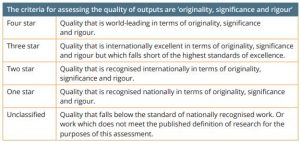
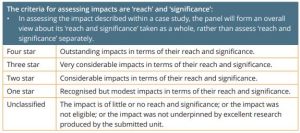







 Research England have this morning published the final guidance for REF 2021 submission. The following documents:
Research England have this morning published the final guidance for REF 2021 submission. The following documents:


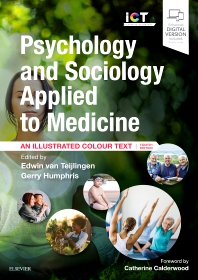







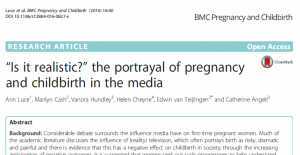
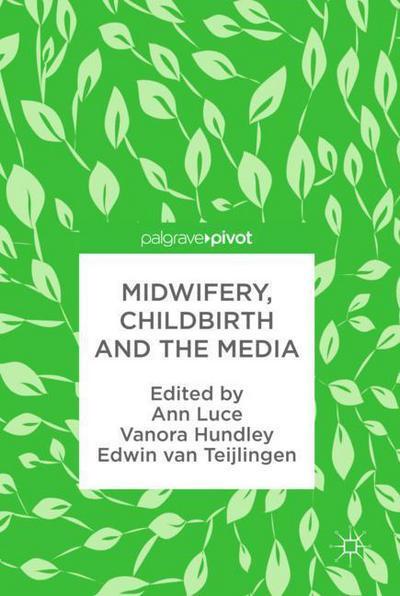











 Read and sign up to BU’s Policy Influence Digest
Read and sign up to BU’s Policy Influence Digest Upcoming opportunities for PGRs – collaborate externally
Upcoming opportunities for PGRs – collaborate externally BU involved in new MRF dissemination grant
BU involved in new MRF dissemination grant New COVID-19 publication
New COVID-19 publication MSCA Postdoctoral Fellowships 2024
MSCA Postdoctoral Fellowships 2024 Horizon Europe News – December 2023
Horizon Europe News – December 2023